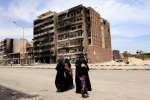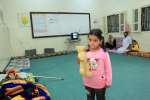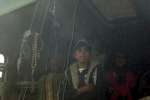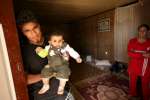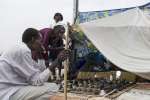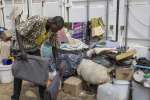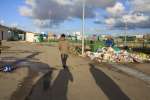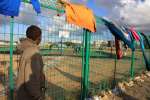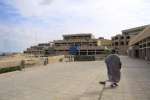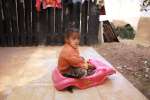Donors pledge more than 300 million euros to help refugees in Balkans
News Stories, 25 April 2012
SARAJEVO, Bosnia and Herzegovina, April 25 (UNHCR) – International donors have pledged an initial sum of more than 300 million euros towards a programme to provide homes for some 74,000 people displaced in the Balkans during the conflict of the 1990s.
The pledges, including 230 million euros from the European Union (EU), were made on Tuesday at a conference in Sarajevo that was organized by the governments of Bosnia and Herzegovina, Croatia, Montenegro and Serbia. The ambitious housing project, to be implemented over the next three to five years, will benefit refugees, returnees and internally displaced people in the four countries, which were formerly part of Yugoslavia.
"We are seeking to write the last chapter of the displacement in the western Balkans," UN High Commissioner for Refugees António Guterres told participants at the conference. The governments of the four countries are seeking 500 million euros in total and have themselves pledged 84 million euros.
The violent break-up of the former Yugoslavia in the early 1990s led to widespread material damage and left some 200,000 people dead and about 2.7 million displaced within and beyond the region. A majority of those uprooted in Europe's worst conflict since 1945 have returned home or integrated locally. But many of the tens of thousands still displaced live in poverty and dire conditions – they need proper housing and continued assistance.
The needs outlined in the regional housing plan were identified by the respective governments through a consultative process supported by UNHCR, the EU, the United States and others. The refugee agency played a specific role in setting out the vulnerability criteria in order to ensure that the shelter assistance benefits the most needy.
With these initial pledges of funding, the programme can get under way. UNHCR, and in some countries the Organization for Security and Cooperation in Europe (OSCE), will monitor this crucial stage of the process and support the four countries in bringing this protracted refugee situation to an end.
"I believe that this is the moment for the international community to show its commitment and its solidarity, to make sure that this regional housing programme is more than that, and becomes a comprehensive step towards durable solutions for the refugees and internally displaced," said the High Commissioner.
The donor conference in Sarajevo is another step in the lengthy process of finding lasting solutions for refugees and the internally displaced in this part of Europe. Efforts to resolve the situation received fresh impetus in 2008, when Guterres identified it as one of the world's five priority protracted refugee situations.
This week's meeting follows directly from a pledge made by the four governments last November in Belgrade to step up efforts to resolve the situation. In a joint declaration, they gave their support to a work plan setting out concrete steps for removing the remaining obstacles to a durable solution. The declaration is a firm political, legal and socio-economic commitment to cooperate at regional and national level in dealing with the displacement problem.
More than 350 senior government officials and diplomats from 41 countries as well as representatives of international organizations and NGOs took part in the day-long event.
By Andrej Mahecic in Sarajevo, Bosnia and Herzegovina





